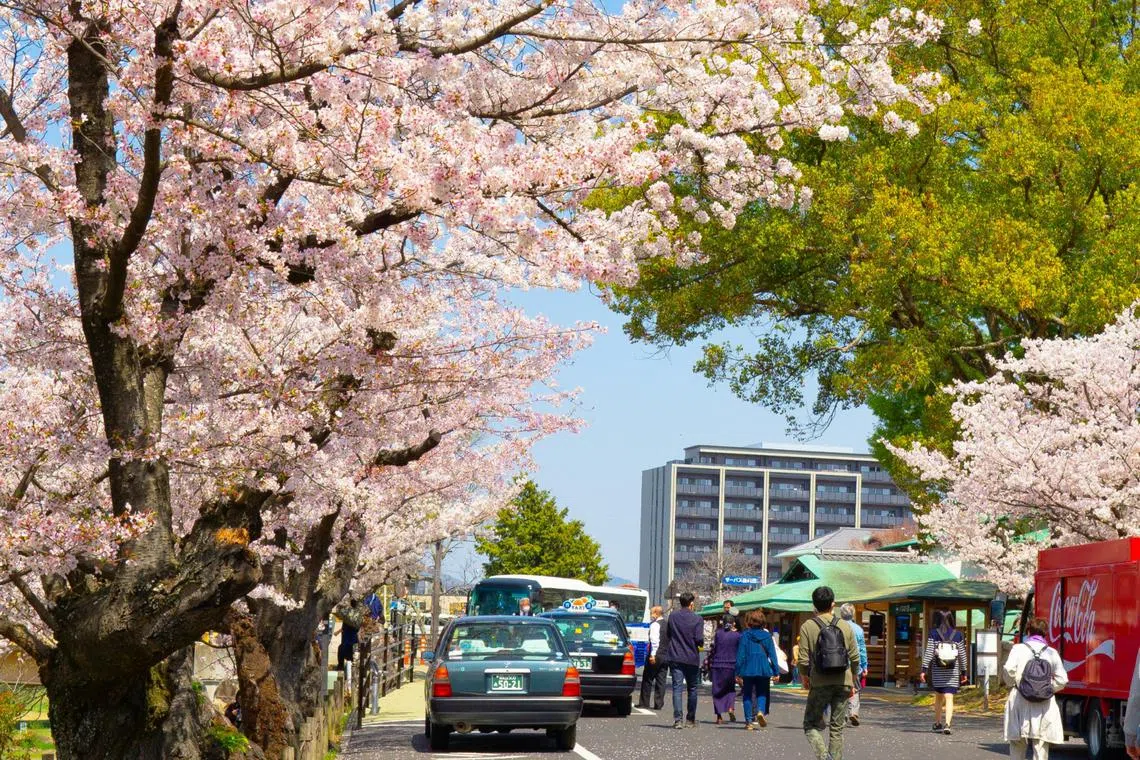A to Z of 2024: Rising mercury shifts seasons and impacts travel plans
Sign up now: Get ST's newsletters delivered to your inbox

Global warming is causing travellers to face more unpredictability with seasonal attractions.
PHOTO: AFP
Follow topic:
SINGAPORE – The year 2023 was recorded as the hottest in history, and 2024 is on track to surpass it.
Global warming – largely attributed to carbon emissions from burning coal, oil and gas – is the main culprit, causing the mercury to rise at an alarming rate.
In July, southern Europe endured a relentless heatwave, with Greece’s iconic cultural attraction, the Acropolis – a hilltop Unesco World Heritage site that attracts hundreds of thousands of tourists annually – shut down for hours as temperatures soared to 38 deg C.
In 2023, the mercury hit 45 deg C in Syntagma Square – a historically significant central square in Athens – as the country suffered its longest heatwave on record.

The Acropolis in Greece shut down for hours in July as southern Europe endured a heatwave.
PHOTO: REUTERS
In South-east Asia, April brought an unprecedented heatwave, pushing temperatures in countries such as Thailand, Laos and Cambodia above 40 deg C in some regions.
The effects of extreme heat are already reshaping tourism. Thailand’s Tourism Authority announced a shift towards promoting early morning and night-time activities to help visitors avoid the punishing midday sun.
Meanwhile, Singapore experienced its warmest decade on record from 2014 to 2023, with persistent humidity amplifying the perception of heat for both locals and tourists.
Travellers have certainly felt the heat, with many seeking out countries with cooler climates for their vacations.
A report by the European Travel Commission revealed a 10 per cent drop in interest in visiting Mediterranean destinations such as Greece and Spain from June to November 2023, compared with 2022.

Cooler locations such as Denmark, Ireland and the Czech Republic are gaining popularity with tourists.
PHOTO: UNSPLASH
In contrast, cooler locations such as Denmark, Ireland and the Czech Republic are gaining popularity for milder temperatures.
Singapore travellers are no exception. Between 2023 and 2024, luxury tour agency Scott Dunn observed a 26 per cent increase in bookings to cooler regions like Scandinavia during the summer months from June to August in 2024, compared with 2023.
It also witnessed a 400 per cent rise in inquiries for Finland travel this summer, compared with the same period in 2023.
“The lack of seasonality means that the industry must evolve to focus more on year-round appeal. I think this can actually open up more opportunities for destinations, especially those that were seen as either typical summer or winter getaways,” says Ms Geraleine Yap, senior luxury travel specialist for Europe at Scott Dunn.
Tour agency Chan Brothers Travel saw a fivefold increase in tour bookings to Tibet departing between June and September, compared with the same period in 2023, while the south-western Chinese province Yunnan had bookings nearly triple.
Mr Jeremiah Wong, assistant director of marketing communications at Chan Brothers Travel, says the company does not foresee a major shift in its overall approach to seasonality as the industry “is already attuned to its ebb and flow”.
Travellers are not the only ones adjusting to the changing climate – nature is adapting, too.

Cherry blossom season has been affected by global warming.
PHOTO: UNSPLASH
Japan’s famed cherry blossom season, a hallmark of spring tourism, is becoming more unpredictable. The delicate pink flowers typically bloom around late March to April each year and start opening from the southern region.
In 2023, blooms arrived up to 10 days early in many areas, with northern regions witnessing blossoms up to half a month ahead of schedule. Warmer weather encourages cherry blossoms to arrive earlier.
Although cherry blossoms reached full bloom later than usual in 2024 due to cold weather, the Japanese Meteorological Agency warned that in the long term, climate change would continue to shift the season earlier.
Japan suffered its joint hottest summer in 2024, matching the temperatures in 2023, with the month of July being the hottest in the country since records began 126 years ago.
In December, the country also had its hottest autumn recorded, the Japan Meteorological Agency said on its website. As a result, the autumn foliage season was delayed, with leaves turning auburn days later than usual.
This unpredictability complicates travel planning for seasonal attractions, further highlighting how the climate crisis is reshaping not just where, but also when, people travel.
As the temperatures continue to heat up to new highs, tourism industries are reimagining offerings to mitigate the impact.
In 2025, expect the travel landscape to evolve even further, with innovative solutions, climate-adaptive strategies and a greater focus on responsible tourism driving the next chapter of global exploration.


